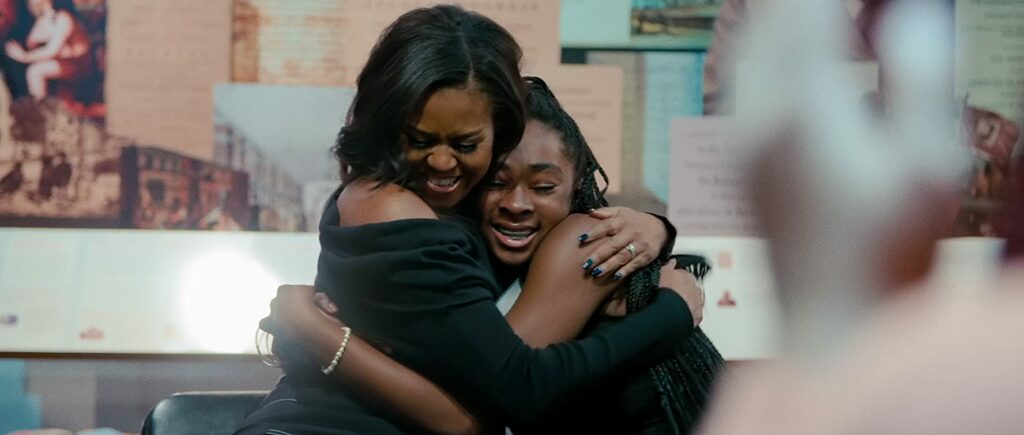Netflix’s newest documentary Becoming landed on May 6th and has been trending on the site since. Following Michelle Obama’s 34-stop book tour, it offers audiences a unique insight into the former First Lady, from her childhood growing up in the South side of Chicago to her time at university, to the White House and back to civilian life following her husband’s two-term presidency.
Throughout Becoming we’re offered a less censored and more honest Michelle than we’ve seen before, as she tells her story from her perspective. We learn about her childhood, the impact her family had on her, and how she became aware of racism from a young age. We hear the hilarious tale of how Michelle and her future husband came to meet, and what it was like to start a family. Most interesting of all, we hear what it was like during her time living in the White House, and how she was shaped (for better and worse) by her experiences there.

It’s the most revealing documentary on a modern leader to date, and it’s exquisite. Full of joy, humour and nostalgia, it’s a truly enjoyable watch that sates your curiosity on many fronts yet raises a hundred new questions.
As the first Black First Lady (and wife to the first Black President) it is unsurprising that issues of race were explored in the documentary. Both fascinating and frustrating, Michelle’s memories of racism shine a light on the prejudices faced by people of colour in America, both in the past and present. We learn of the White families who moved out of her neighbourhood as Black families moved in. We hear of her roommate who changed dorms because she didn’t want to live with someone of a different race, and we are reminded of the ugly and disturbing narrative woven by right-wing medias about the Obama’s during the 2008 presidential race. Frankly, it’s enough to make your blood boil.
Except Michelle doesn’t use these stories to incite anger, but instead speaks of hope, of peace, and of a brighter future. She implores her audience, many of whom are young Black women, to fight for the future they want and accept nothing less. To know without a doubt that they are neither less deserving than their White counterparts, nor than their wealthier peers. That they deserve to go to university as much as anyone else and that they have as much chance of changing the world as anyone. Much like the documentary itself, hers is not a message of hate, but of love; not of anger, but of hope.

More than a documentary based on Michelle’s own story, Becoming also looks at the stories of young women across America, following several of those whom the former First Lady met on tour. Intelligent, hardworking and underestimated, their stories are similar to Michelle’s. These are young women on the precipice of reaching their full potential, if only they were given the chance. These are women who could one day be the leaders of their communities, even their country.
It is exciting to meet these young women through filmed snippets of their lives. It feels as though we are witnessing history being made, being introduced to those who will one day rise to heights even they can’t quite fathom yet. They are the hope that Michelle Obama talks about, the people coming up from behind who will take on the task of pushing the collective forward. Despite getting only a small glimpse into their lives, it’s near impossible not to feel excited for the future they will carve.
It is this, more than anything, which stands out when watching Becoming. Hope and positivity are key elements in the film, with the documentary expressing excitement for the future. Becoming is a battlecry heard across the world, asking us to love, to strive, and to hope. Most importantly, it is a celebration of the next generation on whom the future will depend.
Lastly, Becoming serves as a full-stop at the end of Michelle Obama’s personal story; it is as though she is saying goodbye to her identity as First Lady and moving towards a brighter, freer future as Michelle Obama: wife, mother, badass.
Becoming is available to stream on Netflix.
